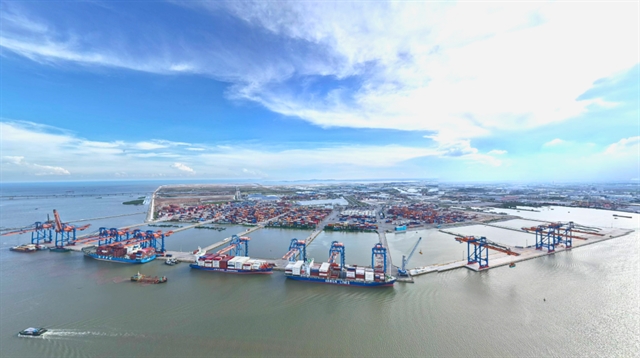 Economy
Economy

Tariffs being cut to zero under the ASEAN Trade in Goods Agreement (ATIGA) from January 1 this year and the COVID-19 pandemic have made for a tough year for the sugar industry, heard an online seminar held by Nhân Dân (People) e-newspaper on Wednesday.

|
HÀ NỘI — Tariffs being cut to zero under the ASEAN Trade in Goods Agreement (ATIGA) from January 1 this year and the COVID-19 pandemic have made for a tough year for the sugar industry, heard an online seminar held by Nhân Dân (People) e-newspaper on Wednesday.
The Việt Nam Sugar and Sugarcane Association (VSSA) reported that a third of sugar factories have closed and many companies are facing bankruptcy as they cannot sell their products, meaning there is no money to cover production costs and pay farmers or workers.
Unbalanced competition between domestically produced sugar and imported sugar from Thailand under the ATIGA's commitments is seen as the cause of the problem by industry insiders.
“Currently, the Thai sugar industry is being supported by its government in many different forms to boost exports. Therefore, the domestic sugar price cannot compete with sugar imported from Thailand,” said VSSA secretary-general Nguyễn Văn Lộc.
The low sugar price has caused sugarcane prices to fall, seriously affecting the raw material areas as well as farmers' income.
Many businesses have increased the purchase price of sugarcane to VNĐ800,000 - 850,0000 per tonne (US$35) to encourage farmers to keep growing sugarcane.
However, the increase in raw material prices leads to higher production costs. It is estimated that the average cost of producing a kilo of white sugar in Việt Nam in the 2019-20 crop year will increase by VNĐ1,000-2,000 per kilogramme compared to that estimated from the beginning of the crop.
Chairman of Lam Sơn Sugar Joint Stock Corporation Lê Văn Tâm said that due to excess global sugar supply, the price of sugar was lower than cost, products could not be sold, inventory was large and cash flow was not circulating, while banks had restricted lending limits.
Along with the effect of the ATIGA, smuggled sugar has also plagued the domestic sugar industry.
Phạm Hồng Dương, vice chairman of Thành Thành Công - Biên Hòa JSC (TTC Sugar), expressed concern as Việt Nam had 41 sugar factories with an area of about 300,000 hectares of sugarcane before ATIGA but 11 had to close after the agreement took effect.
Of the 30 factories in operation, only 13 were efficient, and 17 were suffering losses, he noted.
Data from the General Department of Customs said Việt Nam imported about 200,000 - 400,000 tonnes per year, including both raw and refined sugar, on average in 2017-19.
However, statistics this year showed imports of sugar into Việt Nam reached 820,000 tonnes since the ATIGA took effect, an increase of seven times compared to 2019, mainly Thai sugar.
Việt Nam is one of the largest sugar producers and consumers in the world and in ASEAN. The average annual production capacity of Việt Nam is from 1 to 1.3 million tonnes of sugar.
Compared to other countries in Asia and ASEAN, Việt Nam's annual average sugar production volume is sixth after China, Thailand, Australia, Indonesia and the Philippines.
Thailand and Australia are the two largest sugar exporters in the region and Thailand exports about 5 million tonnes of sugar on average per year. Việt Nam, Indonesia and the Philippines are major sugar importers from Thailand. — VNS




